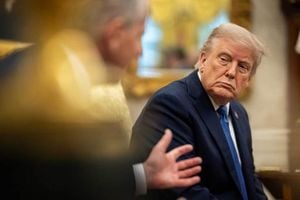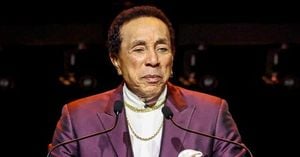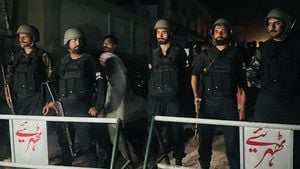A shocking incident has surfaced from Minnesota, where Timothy Michael Scouton, 64, served as the head election judge for Badoura Township. He’s facing serious accusations—two felony counts for allegedly allowing 11 individuals to vote without proper registration.
The situation unfolded when Kay Rave, the Hubbard County Auditor, embarked on routine checks after the election. Upon reviewing the ballots and materials returned by Scouton, Rave found no completed voter registration forms. Alarm bells immediately rang, prompting the county sheriff’s office to launch an investigation.
According to the criminal complaint, when investigators delved deep, they stumbled upon alarming statements from other election judges who interacted with Scouton. One judge recalled Scouton instructing them to disregard the official registration forms. Instead, he allegedly proclaimed new voters need only to sign the back of a logbook. Such directives, if true, have stirred serious concerns about election integrity.
Scouton's first encounter with law enforcement took place at the sheriff's office, where he was informed of his rights but opted not to make any statement. His arrest followed soon after, though the complaint did not elaborate on any potential motives behind his actions.
After the initial court appearance, Scouton was released and is set to return for another hearing on January 6, 2025. His attorney has yet to provide comments on the case, and Scouton himself has not responded to requests for his perspective.
The Minnesota Secretary of State’s office, led by Steve Simon, described the allegations as “extremely serious.” They emphasized the duties of election judges, noting, “Election judges take an oath to administer elections according to the law; a deliberate failure to do so is unlawful and constitutes a betrayal of public trust.” The ramifications of these allegations echo broadly, potentially undermining public faith in the electoral processes.
For now, the residents of Badoura Township, which lies about 160 miles northwest of Minneapolis, find themselves grappling with the aftermath of these events. The charges against Scouton carry severe consequences, with potential penalties of up to five years in prison or fines reaching $10,000.
This troubling circumstance raises wider questions about electoral integrity, the responsibilities assigned to election officials, and how community members can safeguard their rights during the voting process. The voters’ trust is foundational to democracy, and incidents like this can threaten to erode it.
Across the nation, many voters are growing increasingly aware of the importance of registration processes and voting rights. Advocates will likely call for more comprehensive training for election officials to prevent similar disasters from undermining the upcoming elections.
Looking forward, as the investigations continue, many will be watching closely—this situation is not just about Timothy Scouton; it poses questions and challenges relevant to elections everywhere.



